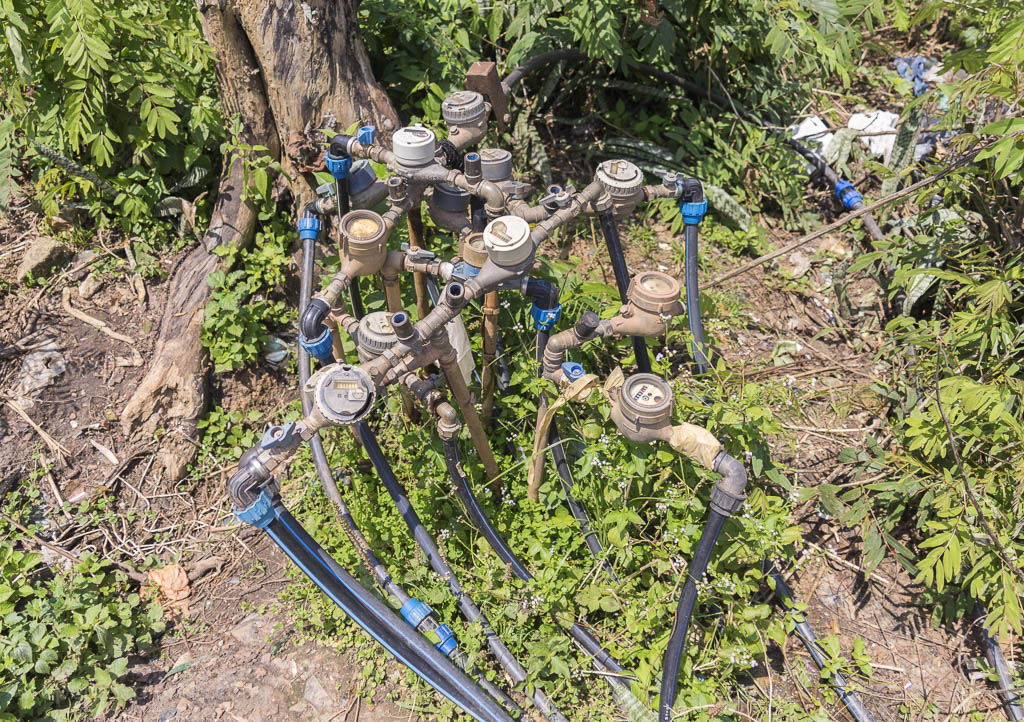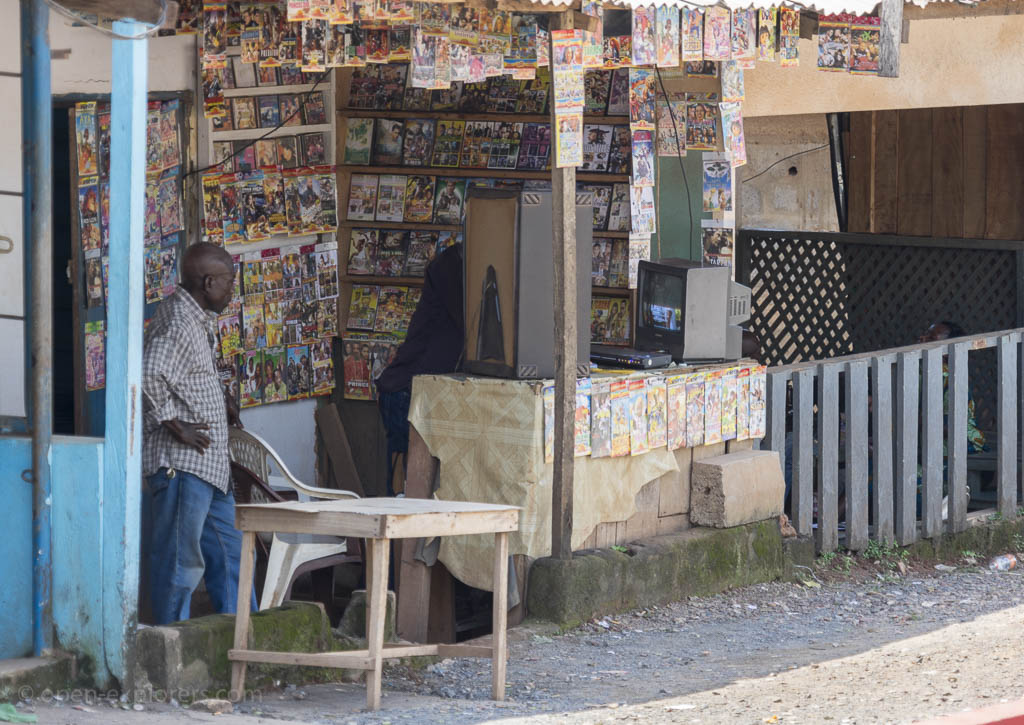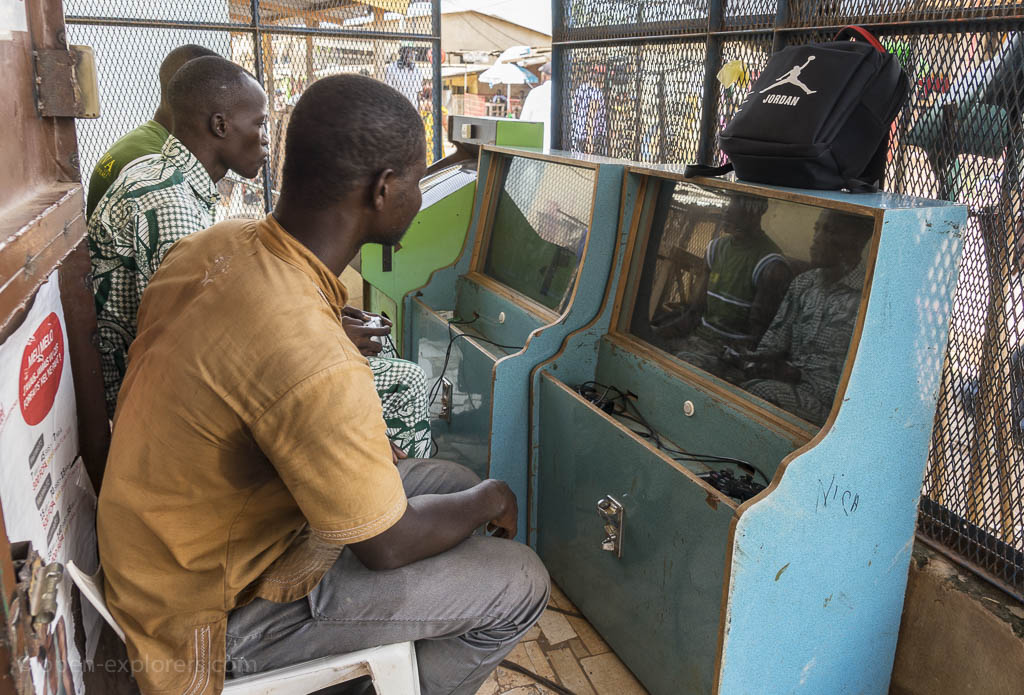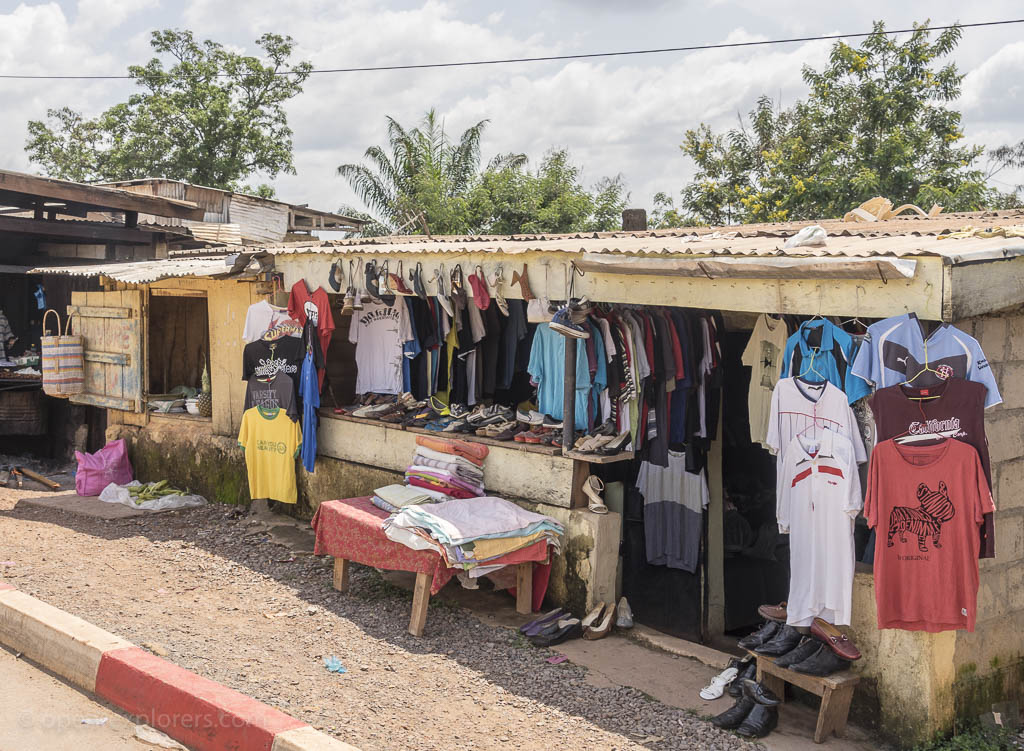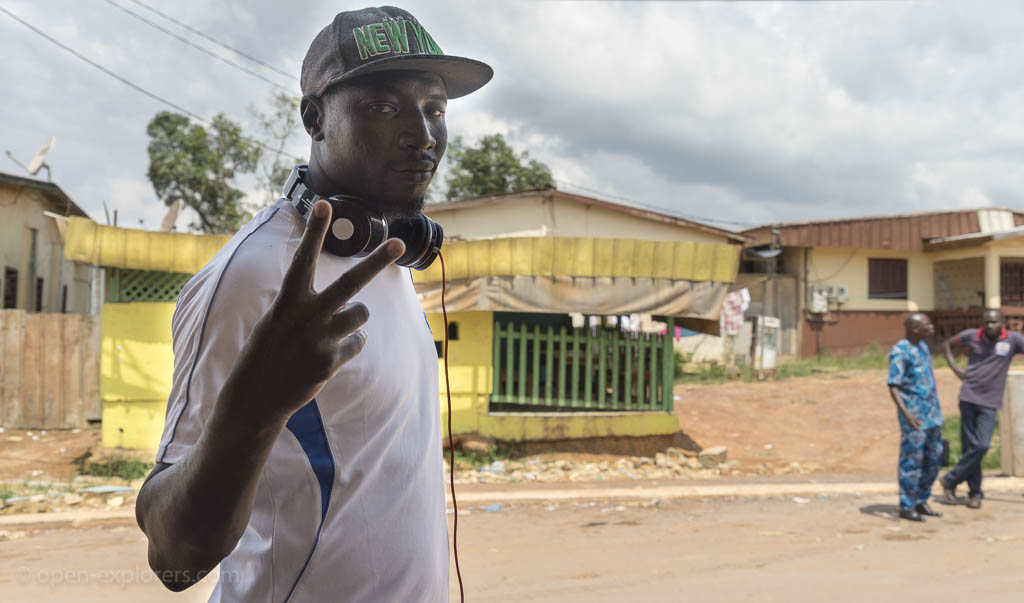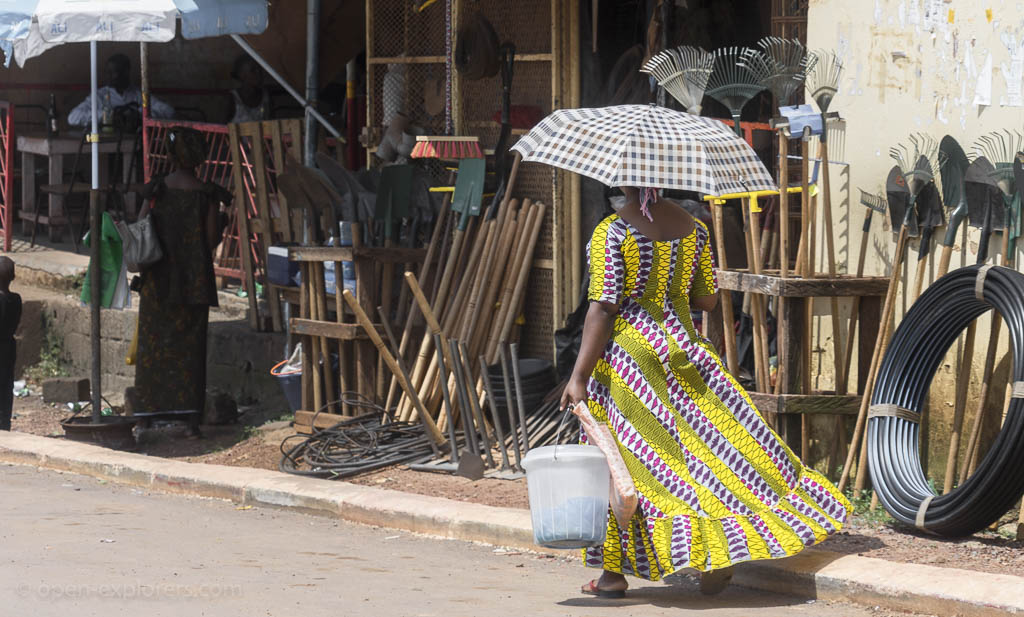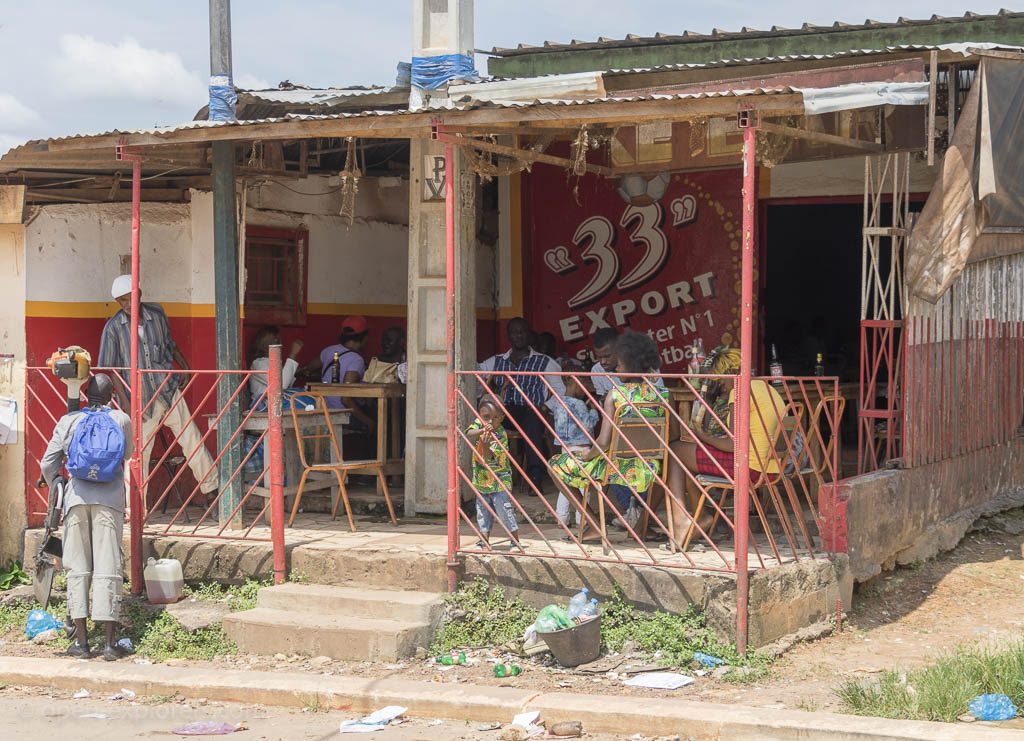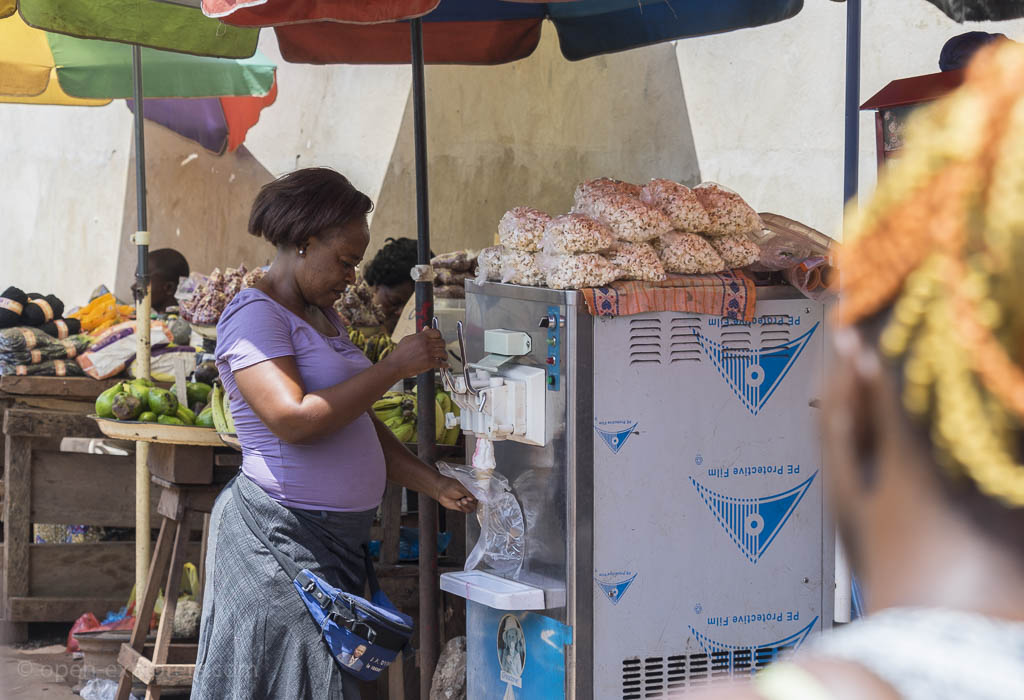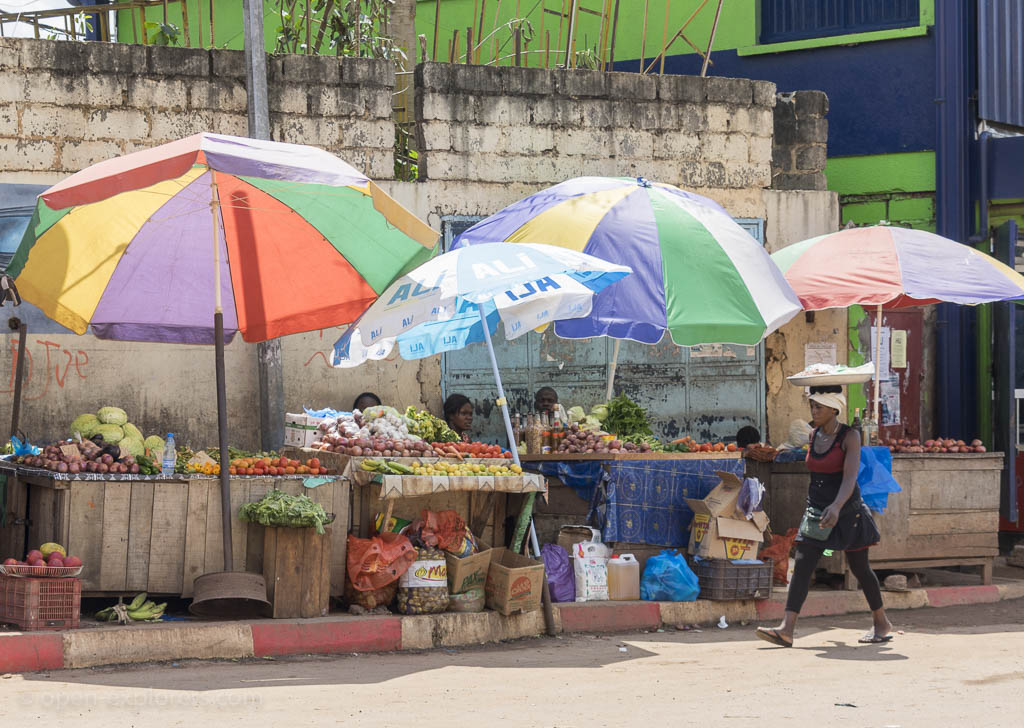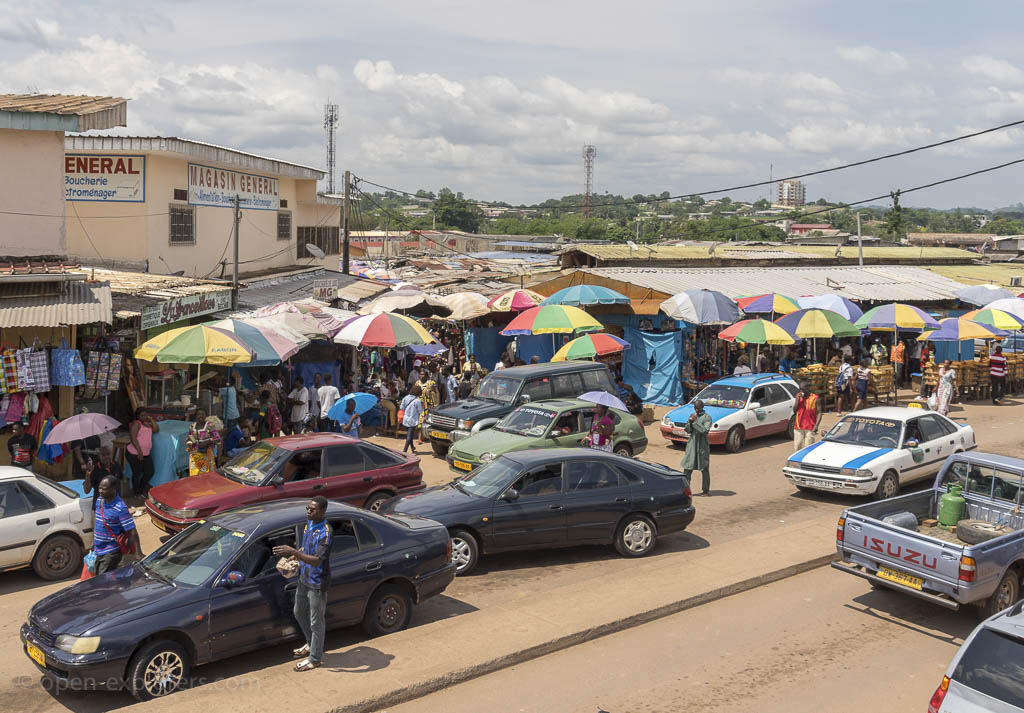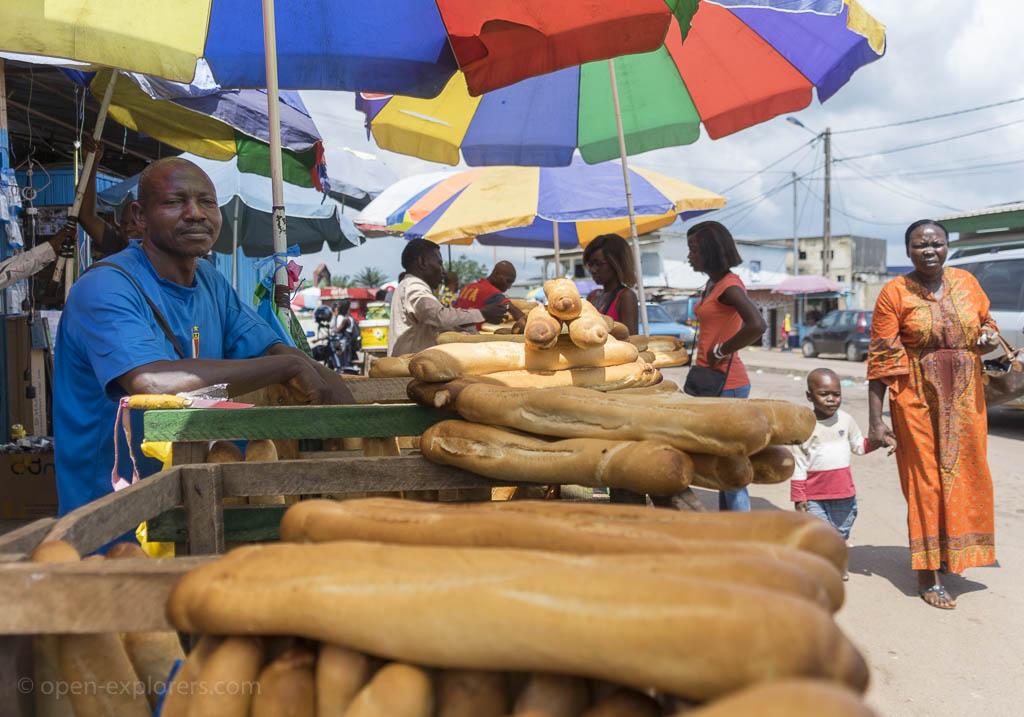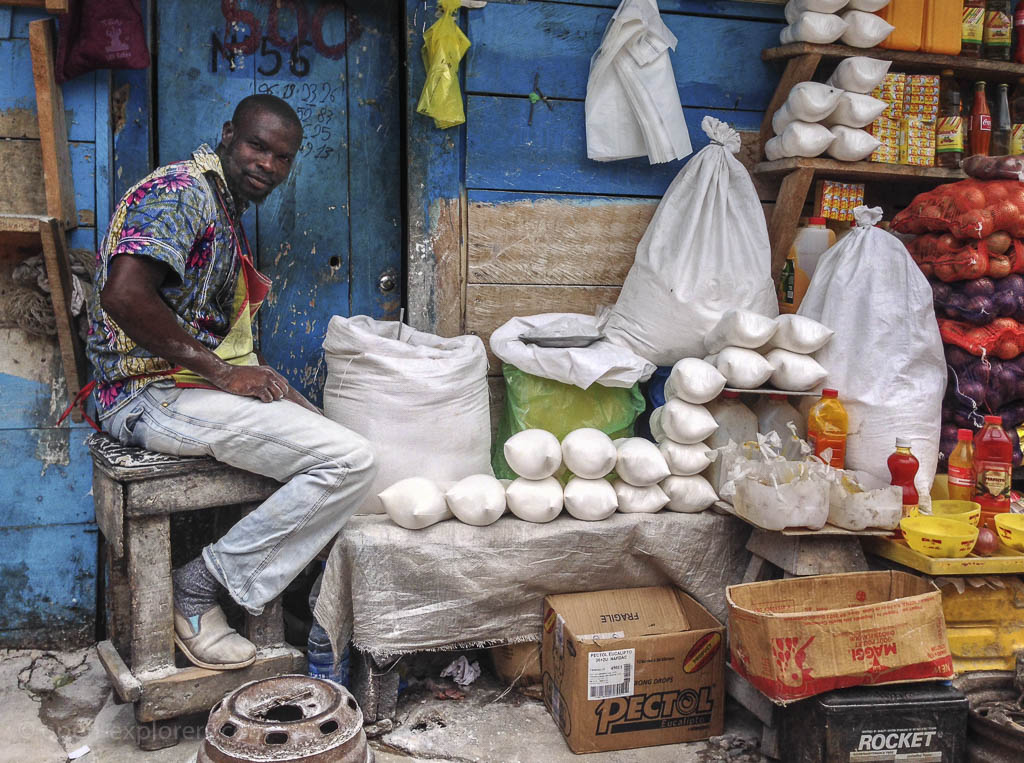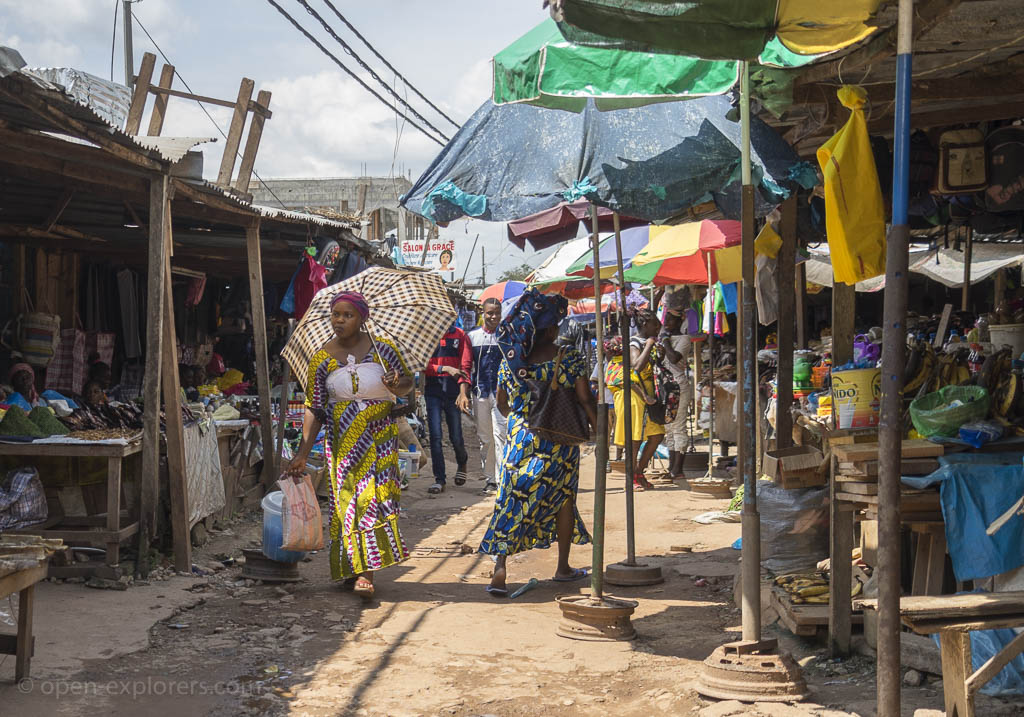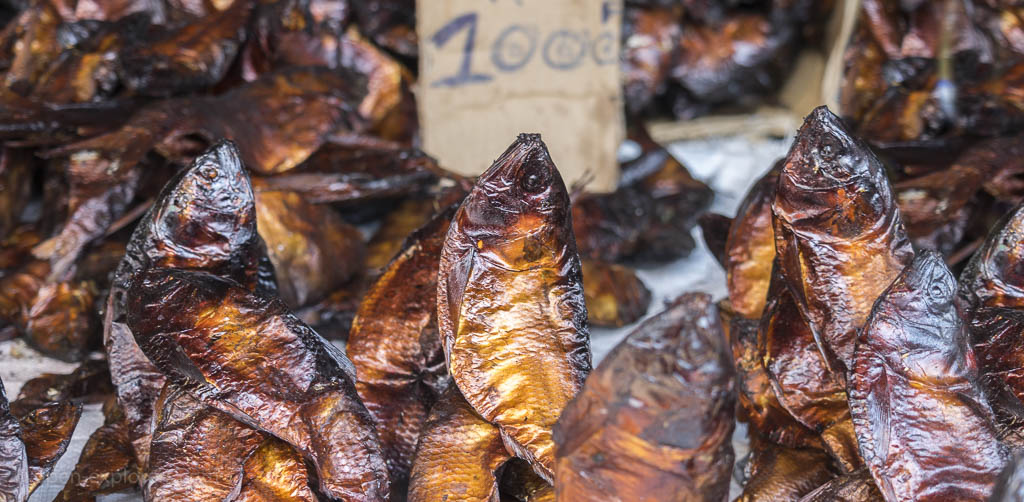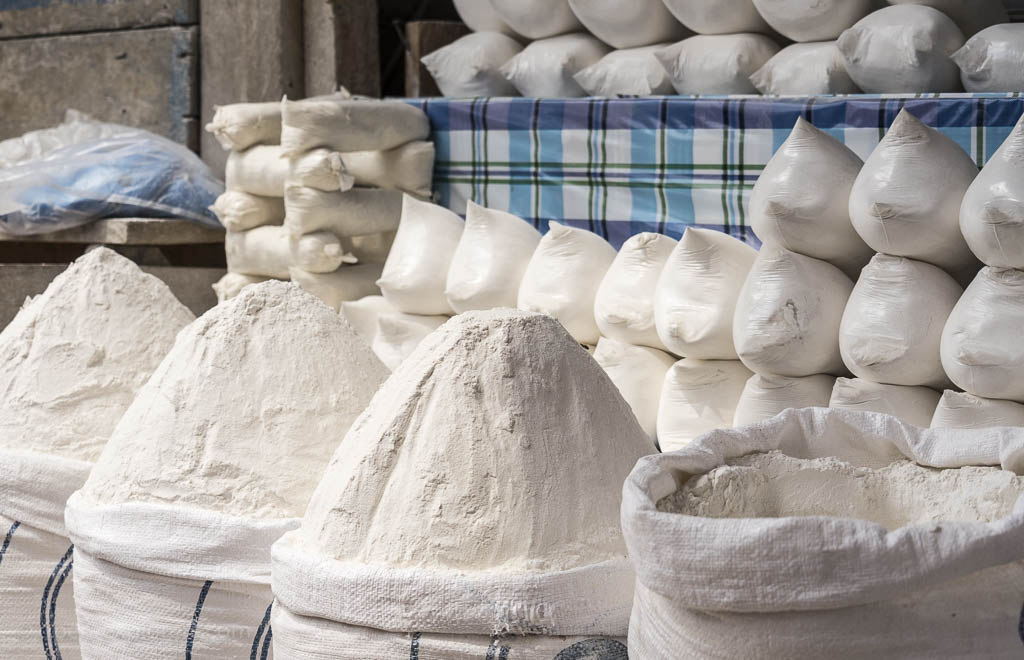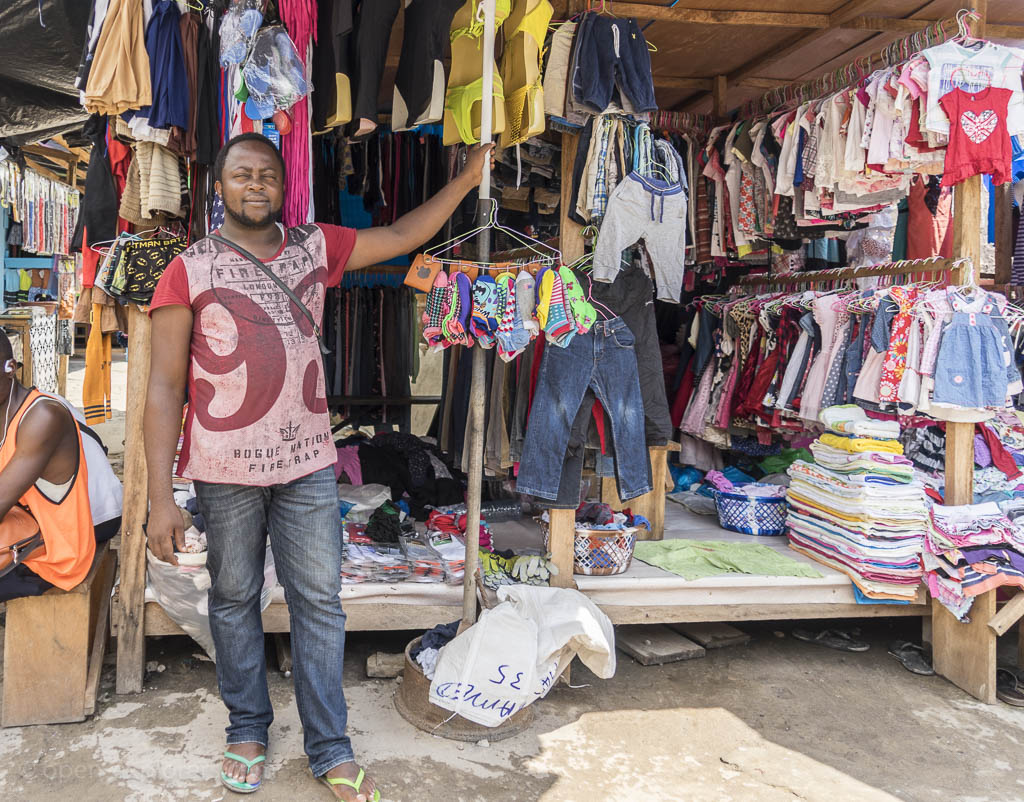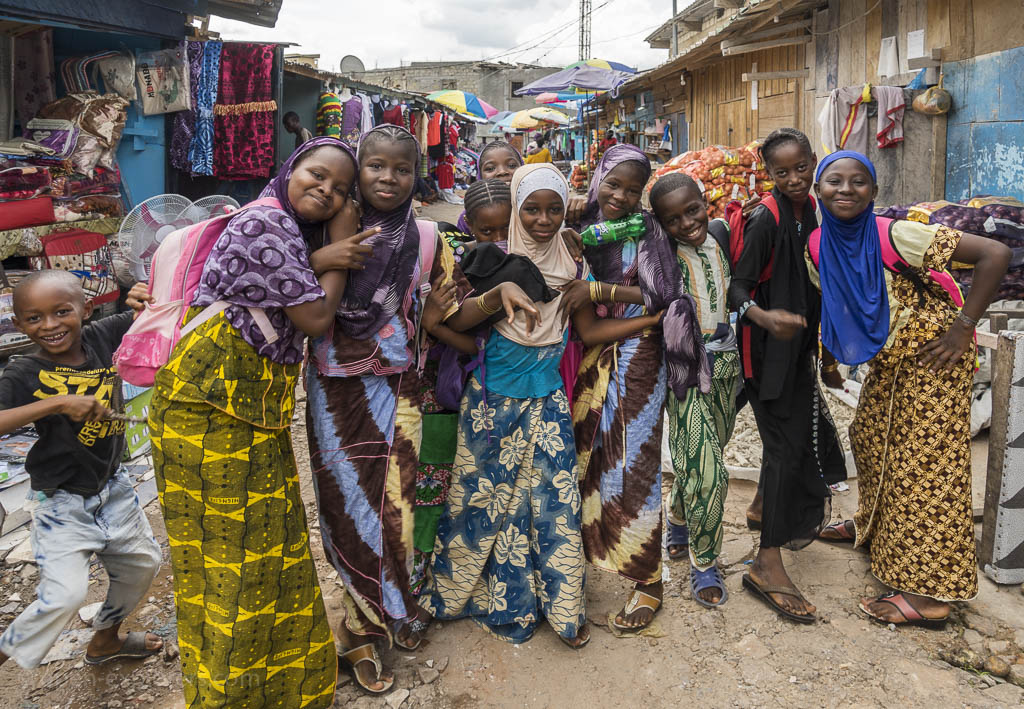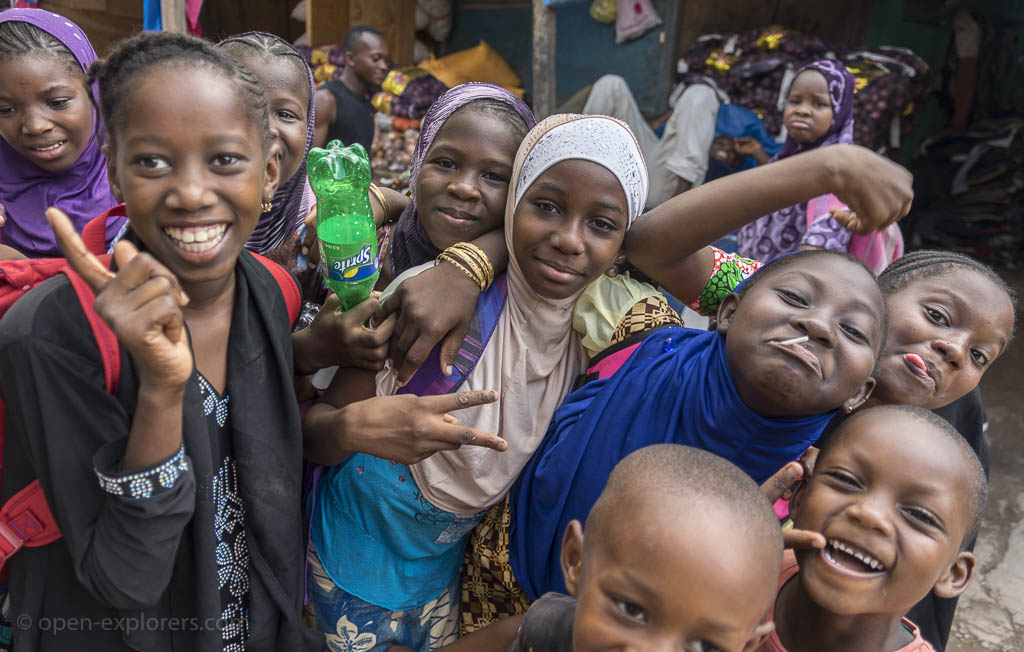Day 959-961 - Welcome to Gabon
About 10 years ago I read an article about Gabon in the National Geographic magzine
and the country has been on my to-go-list ever since. The auther called it „the last eden“ and his descriptions were acompanied by stunning photography of its abundant fauna and flora that fascinated me. And now wer’re finally here!
The border between Congo and Gabon was a very relaxed and friendly one. It seemed they don’t get very many visitors here, it’s been hours since we last saw another vehicle. The immigration and customs offices were even located in the last villages before and after the border. Right at the frontier we encountered only a barrier and a small misplaced looking building where a solitary officer was holding the fort. He too was nice but apparently had set his mind on making an extra buck on us. He demanded that we pay 10.000 CFA (about 15 $US) each for some form he needed to fill out. He notified us that without such form we wouldn’t be able to pass immigration. As usual we didn’t give in to this kind of game, we kept friendly and respectful but persistently refused to pay any „fees“. It didn’t come as a surprise that eventually he just let us pass. 30 km down the road we reached immigration where nobody even asked for the form. Without hesitation we received the stamps in our passports and a cordial „Welcome to Gabon!“.
Justine and JP, the two Canadiens we had met on our last days in Brazzaville had recommended a website of someone who had carfully compiled a great amount of information about Gabon. Jean-Louis, author of said website is a medical technician who has been working and living in Central Africa for several decades and for over 10 years now here in Gabon. Fortunately he answered to the e-mail we sent him and made time for meeting us in his hometown Franceville. He was full of useful and up to date information on road conditions and places to see and eager to share everything with us. However, my enthusiasm to explore this beautiful country was dampened.
In 2003 the former gabonese president Omar Bongo (father of the incumbent president Ali Bongo) turned an incredible 10% of the countries surface into protected areas. An unexpected move that was widely recognised and resulted in a great amount of financial aid for protection programmes pouring in from international organisations. Unfortunately for us though, the infrastructure of the national parks aims at a rather different clientel, the financially sound tourist. Most of the parks are diffcult to get to and some even require traveling on a hired plane or boat. The luxury lodges inside the parks apparently leave nothing to be desired but that comes at the cost of several hundred dollars per day. Prices that are way out of our league. Additionally to that many roads are in disastrous conditions, especially now during rainy season, which makes them unpassable for us. So what it comes down to is that everything stays the same as in the Congo, bad roads and horrendous prices keeping us from enjoying the most special places of the country. A bit frustrating but I’m still hoping for some other opportunities to explore the nature to come up.
Joey
Tag 960-962 - Willkommen in Gabun
Vor etwa 10 Jahren habe ich mal einen Artikel über Gabun in der National Geographic gelesen. Der Autor nannte es „Das letzte Eden“ und die wunderbaren Bilder der beeindruckenden Tier- und Pflanzenwelt haben mich total fasziniert. Seit dem stand Gabun auf meiner „to-go“-Liste und nun sind wir tatsächlich hier.
An der Grenze zwischen Kongo und Gabun ging es sehr sehr entspannt zu. Ich glaube, hier kommen nicht allzuoft Reisende vorbei, seit Stunden hatten wir schon keine anderen Fahrzeuge gesehen. Auch die Pass- und Zollabfertigung findet in den letzten Dörfern vor bzw. hinter der Grenze statt. Direkt auf der Grenze befindet sich nur ein Schlagbaum und ein einsam wirkendes Haus in dem ein einziger Beamter die Stellung hält. Auch er war freundlich, wollte aber scheinbar die Chance nutzen und uns 10.000 CFA (etwa 15 Euro) pro Person für ein Formular abnehmen, ohne das wir angeblich bei der Immigration nicht abgefertigt werden würden. Wie immer blieben wir hartnäckig (und freundlich) und weigerten uns irgendwelche „Gebühren“ zu bezahlen und irgendwann ging es auch ohne das Formular weiter. Als wir 30 km weiter die Immigrationsbehörde erreichten fragte auch keiner mehr danach, wir bekamen ohne Zögern unsere Stempel in die Pässe und ein herzliches „Welcome to Gabon!“.
Justine und JP, die beiden Kanadier die wir in den letzten Tagen in Brazzaville getroffen hatten, hatten uns eine Webseite empfohlen auf der jemand viele Informationen über Gabun bereitstellt. Jean-Louis, Autor der Webseite, ist Medizintechniker und lebt seit mehreren Jahrzehnten in Zenralafrika und seit über 10 Jahren in Gabun. Erfreulicherweise hat er auf unsere Mail geantwortet uns sich gleich an unserem ersten Tag in Franceville Zeit für uns genommen und sein Wissen über Straßenverhältnisse und Sehenswertes geteilt. Leider wurde mein Eifer, dieses wunderbare Land zu erkunden durch seine Berichte ziemlich gebremst.
Der ehemalige gabunesische Präsident Omar Bongo (Vater des amtierenden Präsidenten Ali Bongo) hat 2003 in einer Übernacht-Aktion 10% der Landesfläche unter Schutz gestellt und National Parks einrichten lassen, was natürlich für großes Aufsehen gesorgt hat und viele Organisationen und finanzielle Mittel ins Land brachte. Leider (für uns) zielt die Infrastruktur der Parks auf ein eher anderes Klientel ab, nämlich finanzstarke Luxustouristen. So kann man zum Beispiel viele der Parks nur per Privatflugzeug oder gechartertem Boot erreichen. Die Luxuslodges in den Parks bieten zwar jeglichen Komfort, kosten allerdings auch mehrere Hundert Dollar pro Tag. Solche Preise sind ganz weit außerhalb unserer Liga. Hinzu kommt, daß viele Straßen jetzt in der Regenzeit in katstrophalen Zustand und somit für uns unbefahrbar sind. Im Prinzip setzt sich alles so fort wie in Kongo, denn auch da waren es die exorbitanten Preise und schlechten Straßen die uns die Parkbesuche verwehrten. Das ist alles etwas frustrierend, aber vielleicht ergeben sich ja trotzdem noch Möglichkeiten die Natur des Landes etwas zu erkunden.
Joey
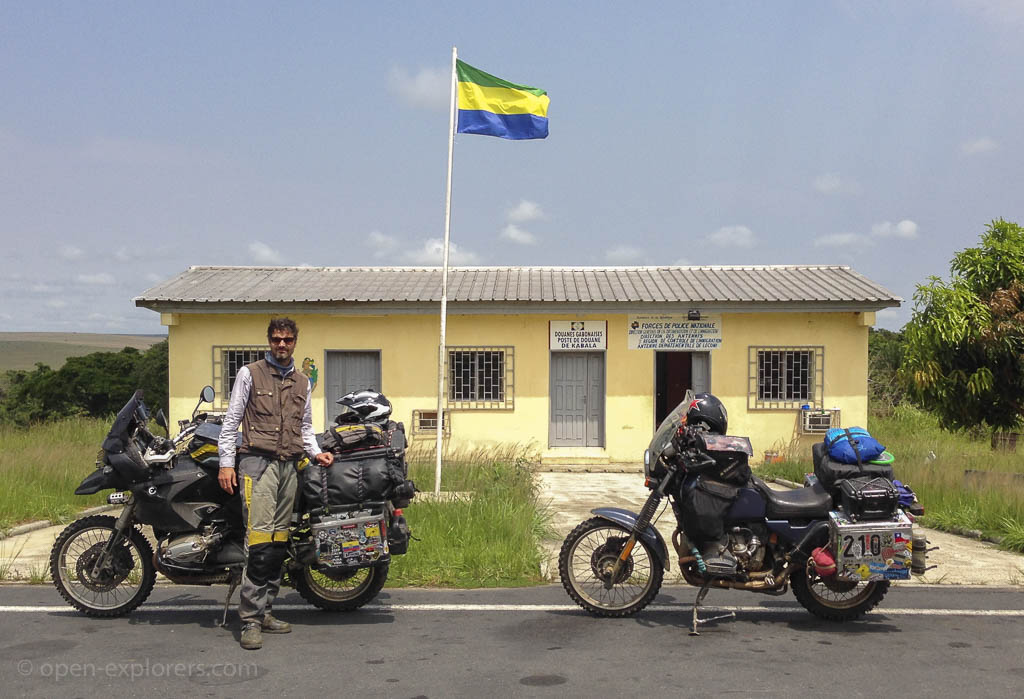
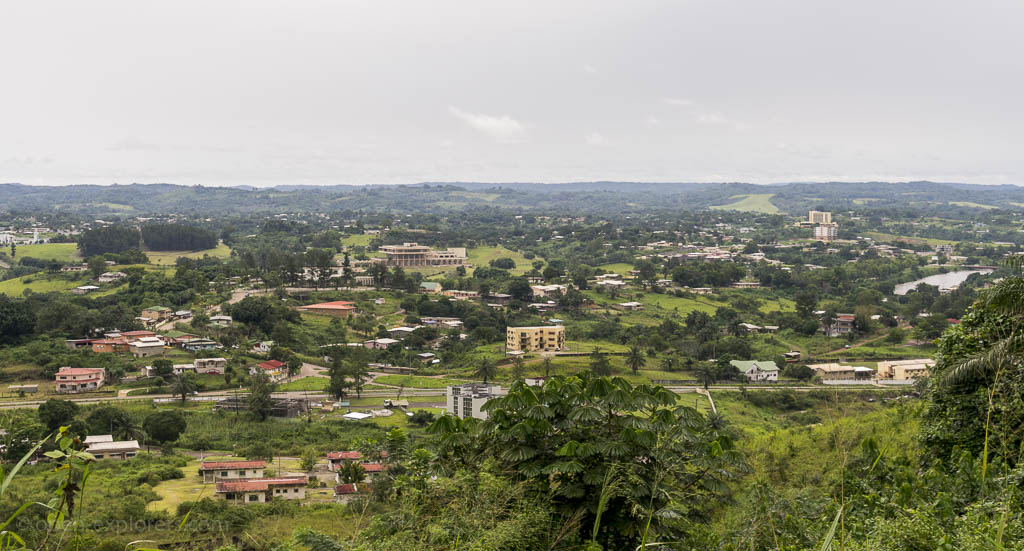
Franceville is very green and spread out and thus doesn't feel very crowded.
Franceville ist sehr grün und weitläufig und fühlt sich dadurch überhaupt nicht so überfüllt an.
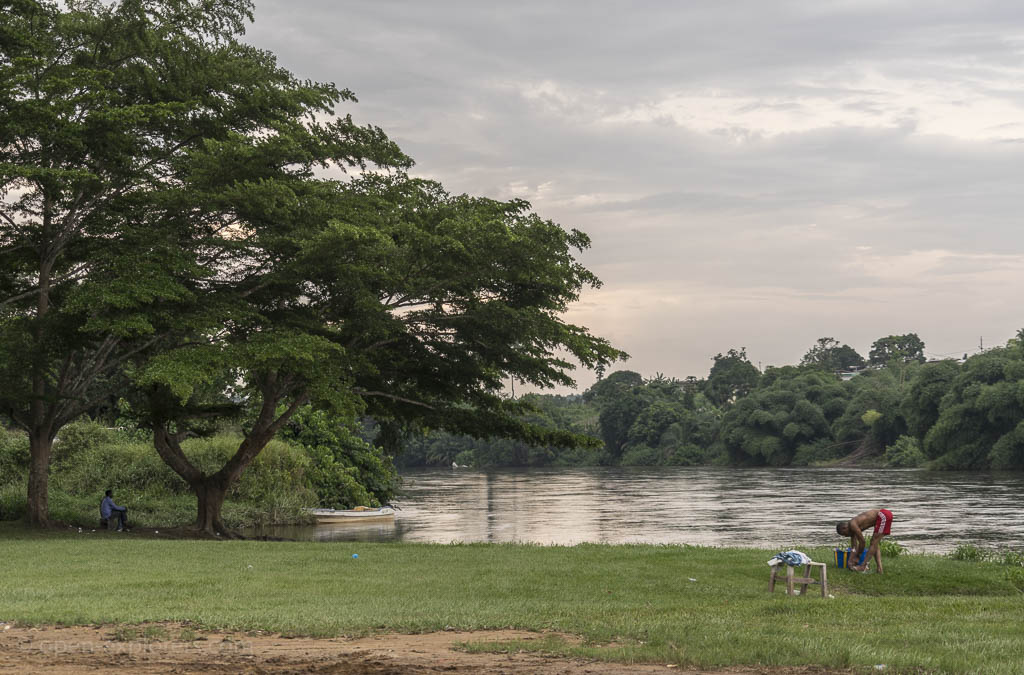
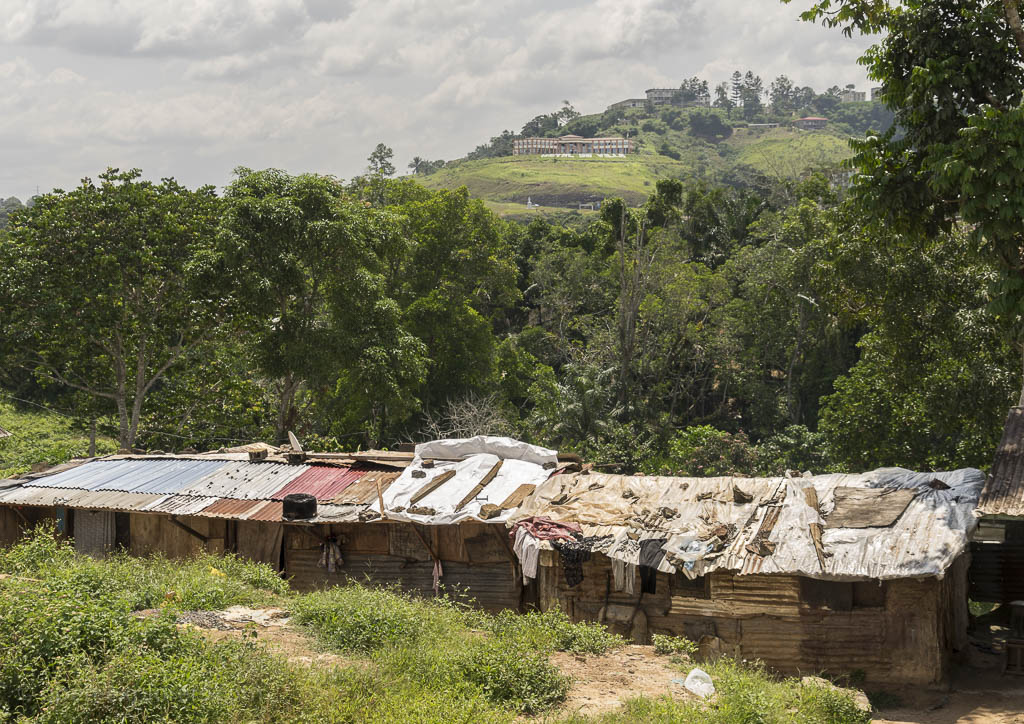
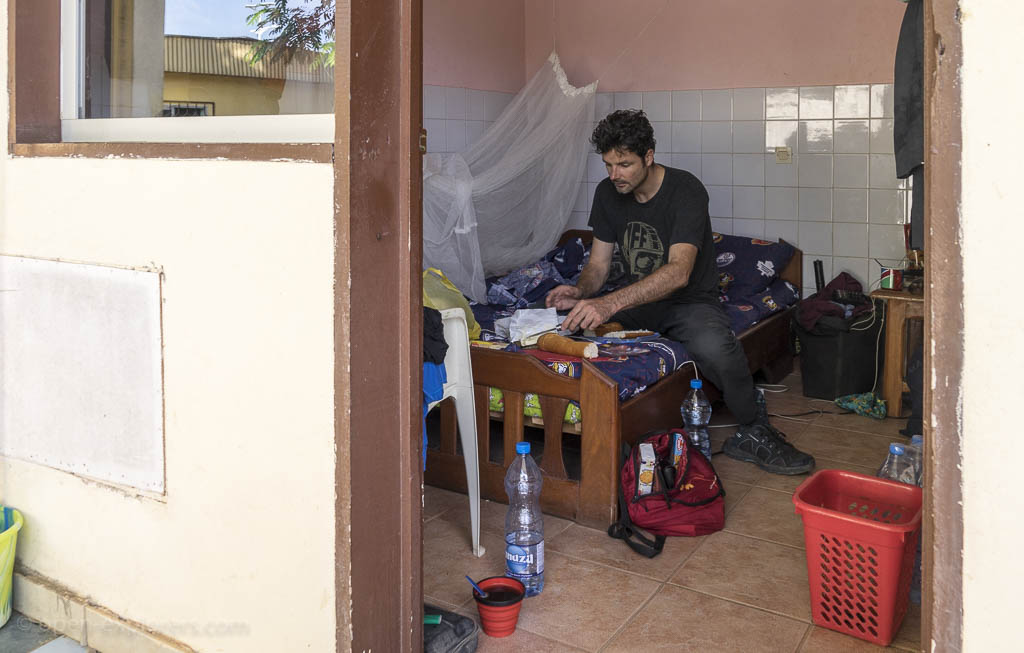
Bathroom with a bed
Badezimmer mit Bett
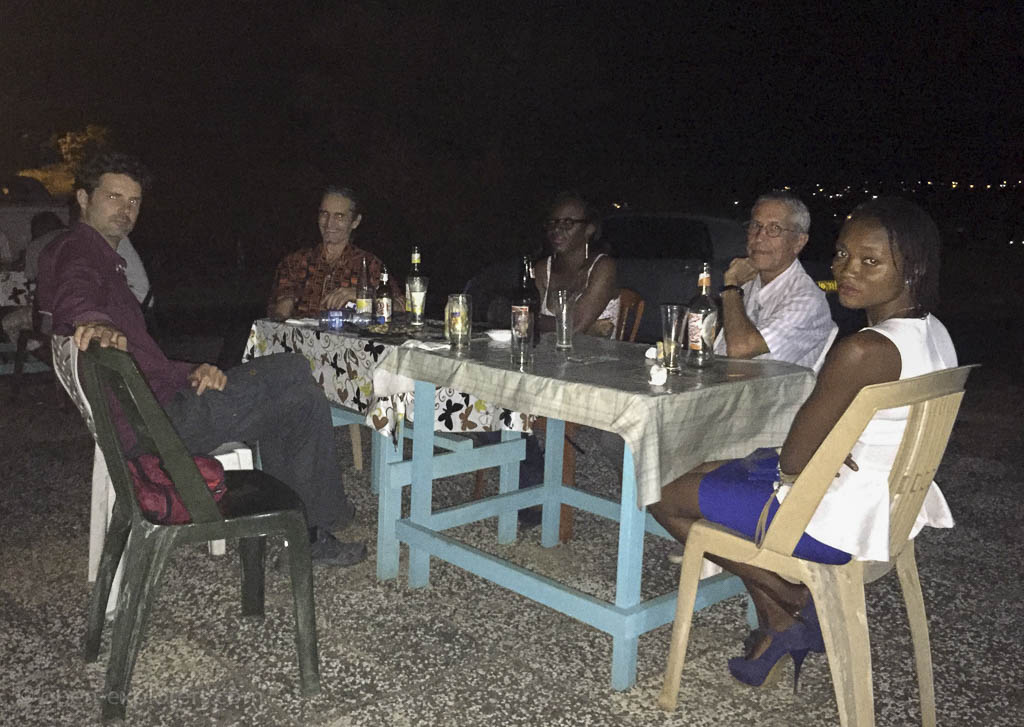
Dinner with Jean-Louis, his friend Hans-Jörg and their wives.
Abendessen mit Jean-Louis, seinem Freund Hans-Jörg und ihren Ehefrauen.
